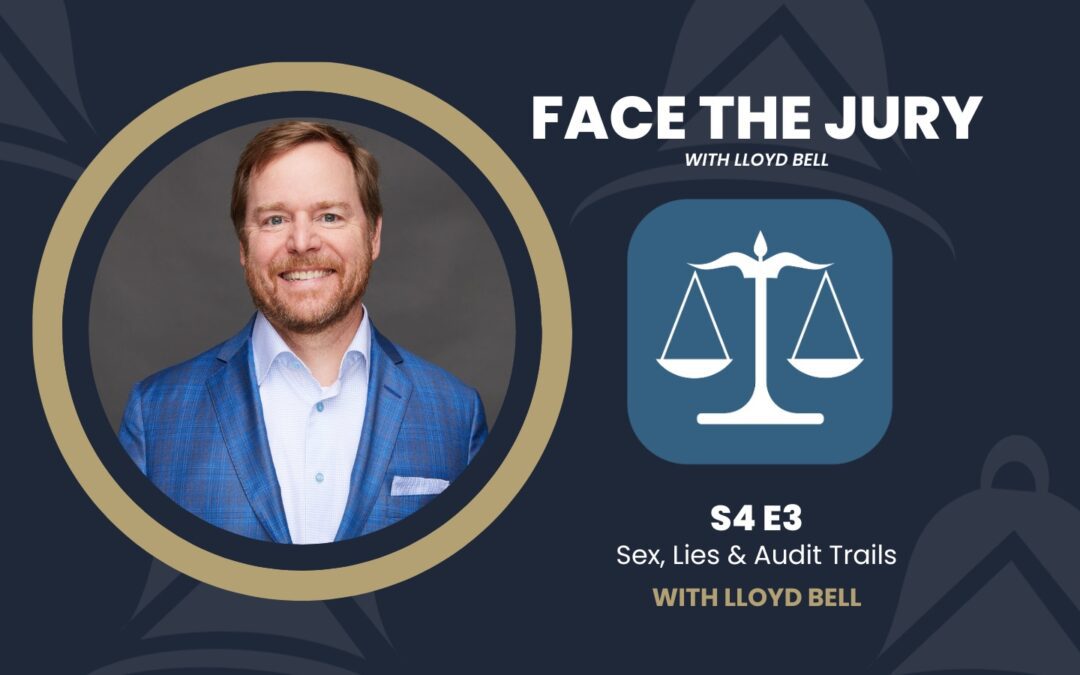In the newest Face the Jury episode, Lloyd Bell does a deep dive into healthcare audit trail data and paints a clear picture of why audit trails are so important despite their complexity. Lloyd discusses the pivotal role of audit trails and their impact on achieving justice for victims of medical negligence in three practical use cases where Bell Law Firm has successfully leveraged audit trail data.
Understanding Audit Trails in Litigation
Audit trails in the context of medical malpractice are one of the most critical components to developing the proof to establish a case.
The healthcare reforms in 2009 implemented a regulation that required most healthcare providers to develop an electronic medical record that documents vital signs, progress notes, order sets, and more. This system creates audit logs that record user activities and store data over time. In the case of litigation, the logs allow the plaintiff’s attorney to see every detail of the specific activities of the healthcare providers during the care of the patient, holding them accountable.
Chronology is crucial when establishing a medical malpractice case to know who did what and when with the patient. In the electronic record, every discrete piece of information or evidence is vital to understand who went into the medical record, when, what they looked at, how long the clinician looked at the information, and where the clinician was in the hospital or the facility. Audit trails can be intimidating and complex but are critical because they tell the story of treatment.
Leveraging Audit Trail Data in Real Cases
In Minnesota, Bell Law Firm helped another firm represent a family where the mother tragically died due to an allergic reaction from a medication oversight. Despite resistance from the defense, we obtained the audit trail and found the records told a different story than what the defense claimed happened. Ultimately, the audit trail data revealed the truth, resulting in a favorable outcome for the plaintiffs.
In another case in Georgia, Bell Law Firm represented a young woman who suffered severe permanent brain injury after medical negligence from her healthcare providers. Again, the defense was resistant to sharing the audit trails. After finally receiving and reviewing the documents, the team discovered two days of missing data, leading to the questionable credibility of the defense.
In a previous case discussed on Face the Jury, Sandra Williams v. St. Francis Hospital, the delayed response of Sandra’s doctor on call resulted in brain damage. The electronic medical record proved that the particular doctor reviewing Sandra’s imaging was lying, which diminished his credibility during the trial.
Utilizing the Experts
Winning a case is a team effort. Finding and utilizing a seasoned expert can make all the difference in a medical malpractice case. For example, professionals who have worked for companies that develop audit trails possess a unique insight. As a leading law firm, we always recommend identifying and retaining experts like this to help bolster the case.
While obtaining audit trail data is crucial, the ability to data mine the complex information into a compelling narrative that truly sets experts apart. This proficiency in data visualization ensures that the story told by the audit trail resonates with the jury. Medical malpractice cases are complex. But experts can help you tell a winning story that uncovers the truth.
Listen to the episode here and stay tuned for the next episode with our host, Lloyd Bell. Face the Jury is a podcast dedicated to confronting the issues involving medical malpractice in America – what it is, how to spot it and how to protect you and your family from medical negligence.

